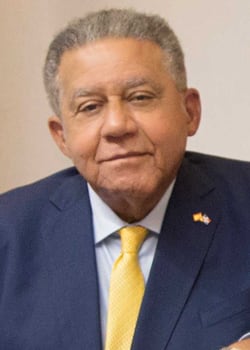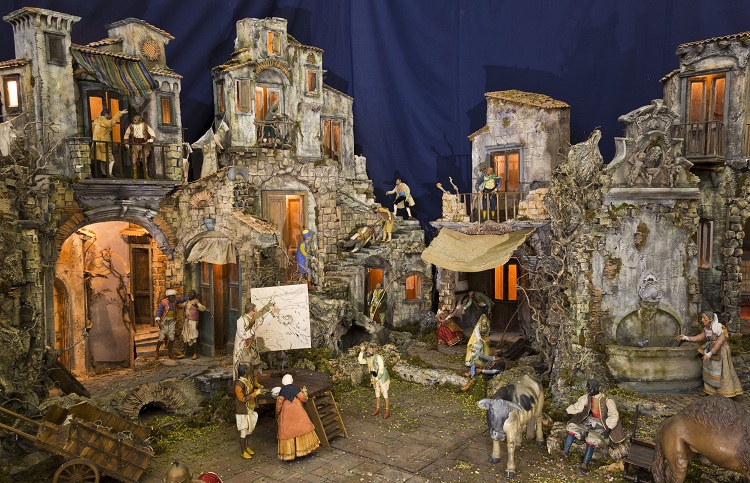Juan Bolívar Díaz
Ambassador of the Dominican Republic to Spain
B
ernarda Jiménez has taken flight without giving the slightest notice, spreading consternation in the Dominican community in Spain and in all those who knew her in the Dominican Republic from where she left four decades ago to become the greatest defender of the rights and dignity of Dominicans who sought in the old continent the opportunities for progress that they could not find in the country.
It is difficult to find in the entire Dominican diaspora throughout the world a person who accumulated as many merits as Bernarda Jiménez Clemente and who fought with such courage, involving her Spanish husband and her two children, against discrimination and exclusion from 1987 when she led the founding of the Dominican Mothers’ Volunteers in Spain (VOMADE) until her sad departure this September 3rd presiding over the Dominican Foundation for the Prevention of Juvenile Violence created almost three years ago to manage the project sponsored by the Dominican Embassy in Spain with the aim of offering attention and trying to rescue the maladjusted boys who take refuge in two Dominican leadership groups that operate in the neighbourhoods of Madrid.
VOMADE is a reference point in Spain for having helped to regularise the migratory status of between 45,000 and 50,000 women, mostly domestic workers, who emigrated to this country in the last two decades of the last century and the first decade of the current one. It also provided them with other services, such as technical training, job placement, health and family reunification.
I met her at Christmas 1992 when I interviewed her on the TV news programme Uno+Uno on Teleantillas and on several visits to Madrid I had the opportunity to see for myself the scope of the work she carried out together with her husband, the philosopher Pedro Álvarez, to whom she added her children Pedro Luis and Stephanie. VOMADE was so successful that it expanded to serve immigrants from other countries, especially Latin America, with support from the central, community and municipal governments. Over the years my relationship with this family deepened.
Last December, President Luis Abinader granted Pedro Álvarez Dominican nationality on a privileged basis for services rendered to our migrants, as well as to political and social leaders, including José Francisco Peña Gómez and Hatuey de Camps.
Bernarda was a medical doctor, a specialist in endocrinology and nutrition, as well as aesthetic medicine, and never abandoned her profession, combining it with immense social activism that took her to much of Europe, the United States and the Dominican Republic to participate in seminars and give lectures on migratory movements and social inclusion. She also found time to write several books, including an Immigrant’s Handbook of which 20,000 copies were printed, and another, now in three editions, on the murder of Lucrecia Pérez, which recounts the beginnings of Dominican migration to Europe.
He was at the forefront of the demonstrations to demand justice for the murder of this Dominican immigrant, which took place in the Aravaca sector of Madrid on 13 November 1992. Her strong character and determination contributed to mobilising large segments of Spanish society, to the arrest and exemplary sentence of 50 years in prison for the civil guard who shot her and 20 years for his two accomplices, making it the first hate crime and racism crime in Spain.
The tenacity of those mobilisations was decisive for Spain to update its migration policies and adopt the social inclusion of immigrants, with several regularisation processes that have included facilities for family reunification and the acquisition of nationality. The National Institute of Statistics updates the number of ‘Spaniards of Dominican origin’ to 123,000, in addition to another 70,000 ‘Dominican citizens with resident status’.
Bernarda Jiménez was justly decorated in 1995 by King Juan Carlos and elected in 2008 as a member of the National Executive Committee of the Spanish Socialist Workers’ Party representing immigrants, for a period of four years, and for six years she was a member of its National Political Committee.
The Mocana doctor kept her Dominican roots alive by travelling several times a year to the country, having a flat in Santo Domingo and being involved in countless political and social activities. Her natural sympathy and immense generosity gave her an immense legion of friends, admirers and collaborators in all areas where she had an impact.
As Ambassador of the Dominican Republic in Spain, I benefited from his deep friendship, advice and suggestions, so his surprising departure leaves an immeasurable void that has been felt by all the members of our diplomatic delegation and my wife Ada Wicovitch. He was almost always present at our dozens of activities with the Dominican community over the last three and a half years. We are dismayed and sympathise with his beloved family and his legion of friends, consoling ourselves with the conviction that he has travelled to the infinite from where he preceded and to which he belonged.
© All rights reserved






